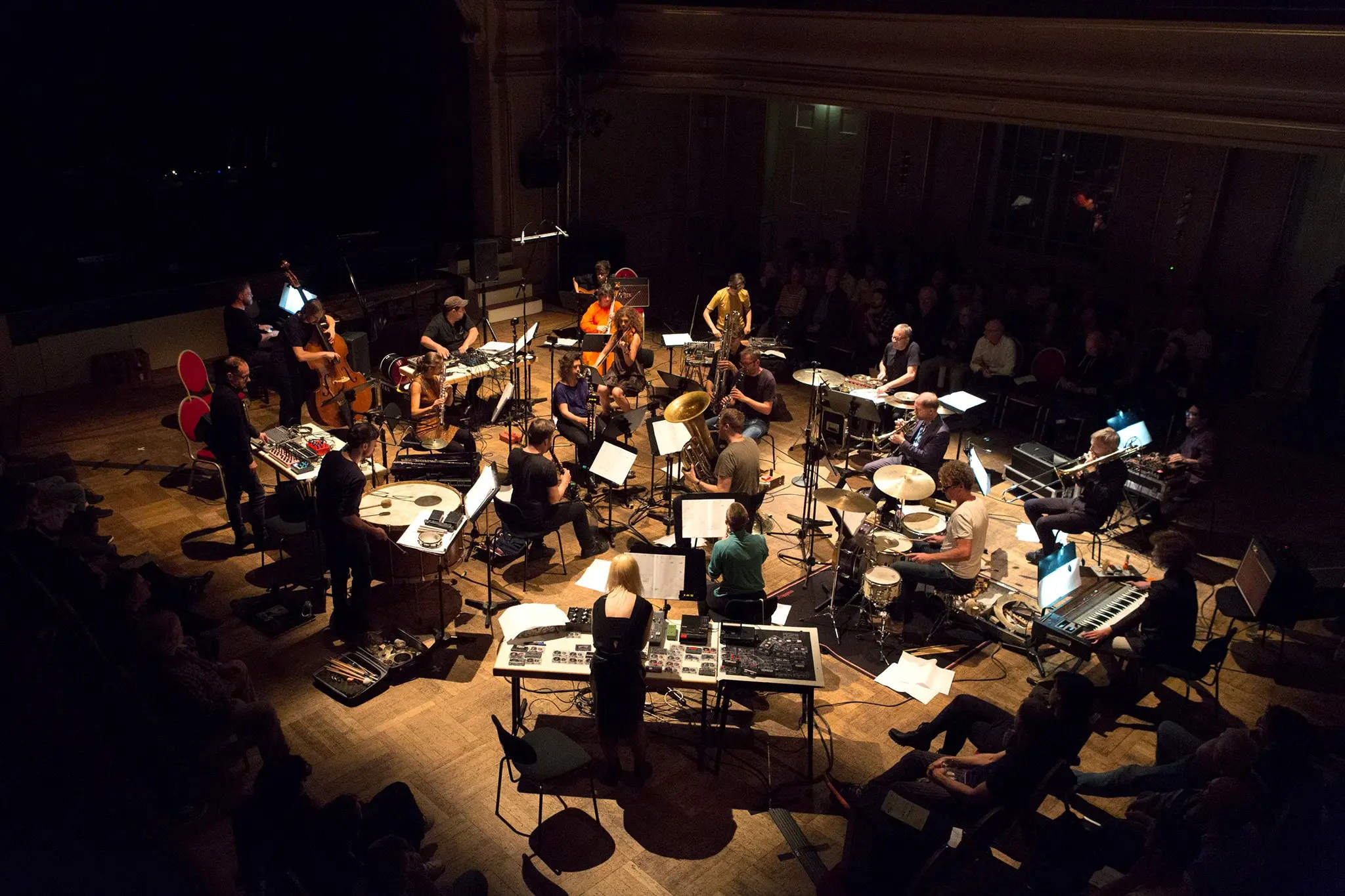SPLITTER ORCHESTER

|
| splitter orchester at heimathafen, berlin 2018. photo: uta neumann |
Current line-up 2024: Burkhard Beins (Percussion), Roy Carroll (Electro-Acoustics), Anat Cohavi (Bass Clarinet), Axel Dörner (Trumpet), Sabine Ercklentz (Trumpet), Kai Fagaschinski (Clarinet), Emilio Gordoa (Percussion), Robin Hayward (Tuba), Steve Heather (Percussion), Chris Heenan (Contrabass Clarinet), Patrick Klingenschmitt (Management), Mike Majkowski (Double Bass, Electronics), Matthias Müller (Trombone), Andrea Neumann (Inside-Piano), Andrea Parkins (Accordeon, Electronics), Marta Zapparoli (Field Recordings, Electronics), Michael Thieke (Clarinet), Sabine Vogel (Flutes), Biliana Voutchkova (Violin)
Home of Splitter Orchester
The Splitter Orchester, founded in 2010, is
a Berlin-based collection of internationally
respected composers/performers which draws
inspiration from many genres, most noticeably
contemporary and improvised music. Splitter
Orchester originates from the Echtzeitmusik
scene which emerged in Berlin in the mid-1990s - a locally based and globally networked
experimental music scene and long-term platform
for the exchange of artistic ideas.
All the members of the Splitter Orchester
are simultaneously composers, interpreters
and improvisers that collectively elude clear
classification - forming an ensemble most
comfortable in the creative borderland between
composed and improvised music. They utilise
a broad variety of extended techniques on
traditional, electronic, and especially constructed
and tailored instruments. The main focus in their
artistic practice is the production of sound (as
opposed to musical material) and on how to diffuse
it in space. The collaborative nature of musical
creation within a Composer-Performer context is
integral, from the first sketch to the performance.
Ten different nationalities are represented in
the orchestra, although all the members are
currently based in Berlin. The Splitter Orchester
is an example of how the contemporary music
scene in an international context is changing
and experimenting (especially in Berlin), with
newer forms of musical communication and
presentation.
Splitter Orchester is not a homogenous body, but
consists of a variety of autonomous and ultra-
specialised musicians/composers who choose
not to work in an institutionalised framework
and call the existing hierarchies in the music
establishment into question. The whole group
relies on each member equally and deliberately
denies established leadership roles to create an
experimental production field, which is process-
oriented and, therefore, socially relevant in a
broader sense.
The long-term ongoing collective work
processes of the orchestra utilise a wide range of
improvisational and compositional approaches -
analysing and contextualising specific methods
and practices of composition and improvisation.
Over five years of experimentation, the ensemble
has developed an extraordinary artistic profile and
specific group sound.